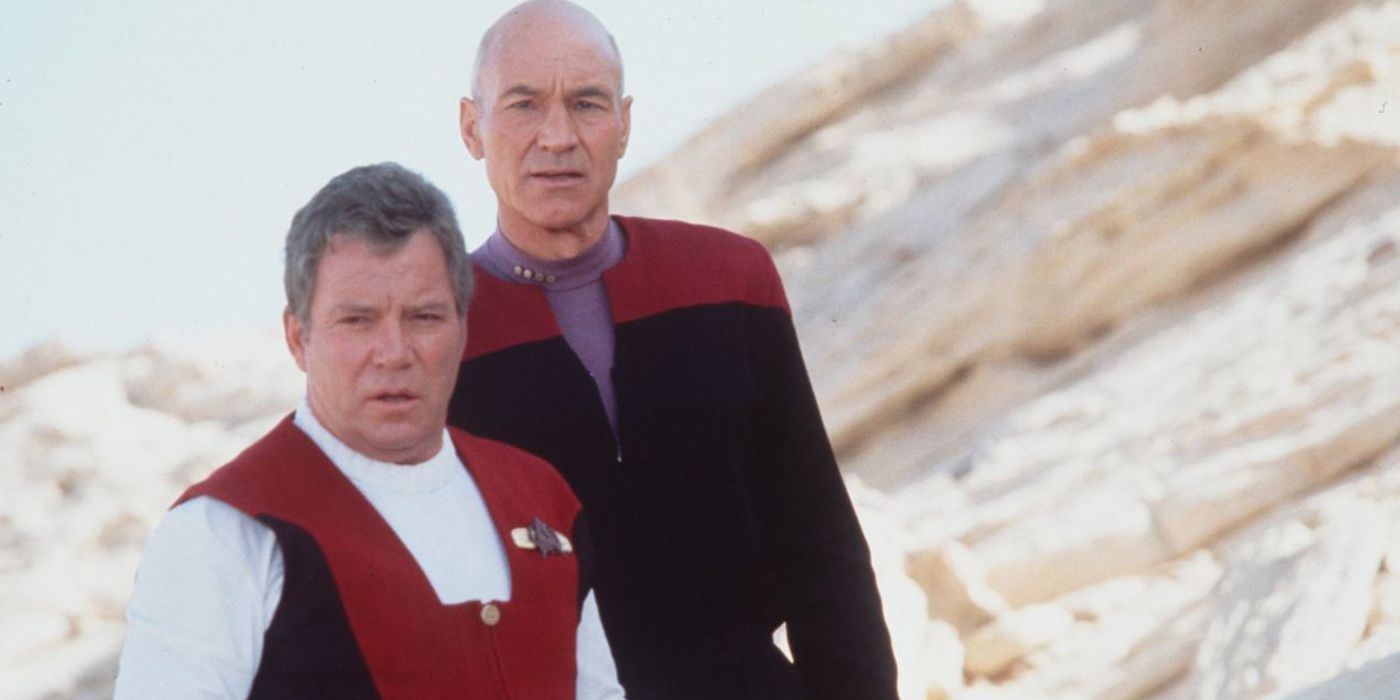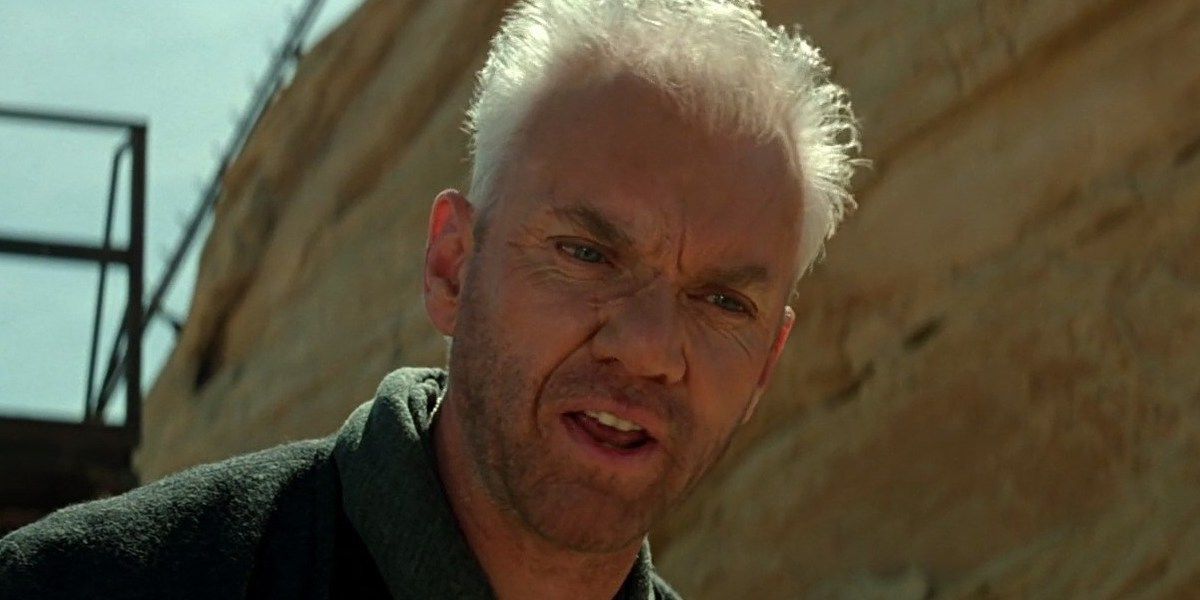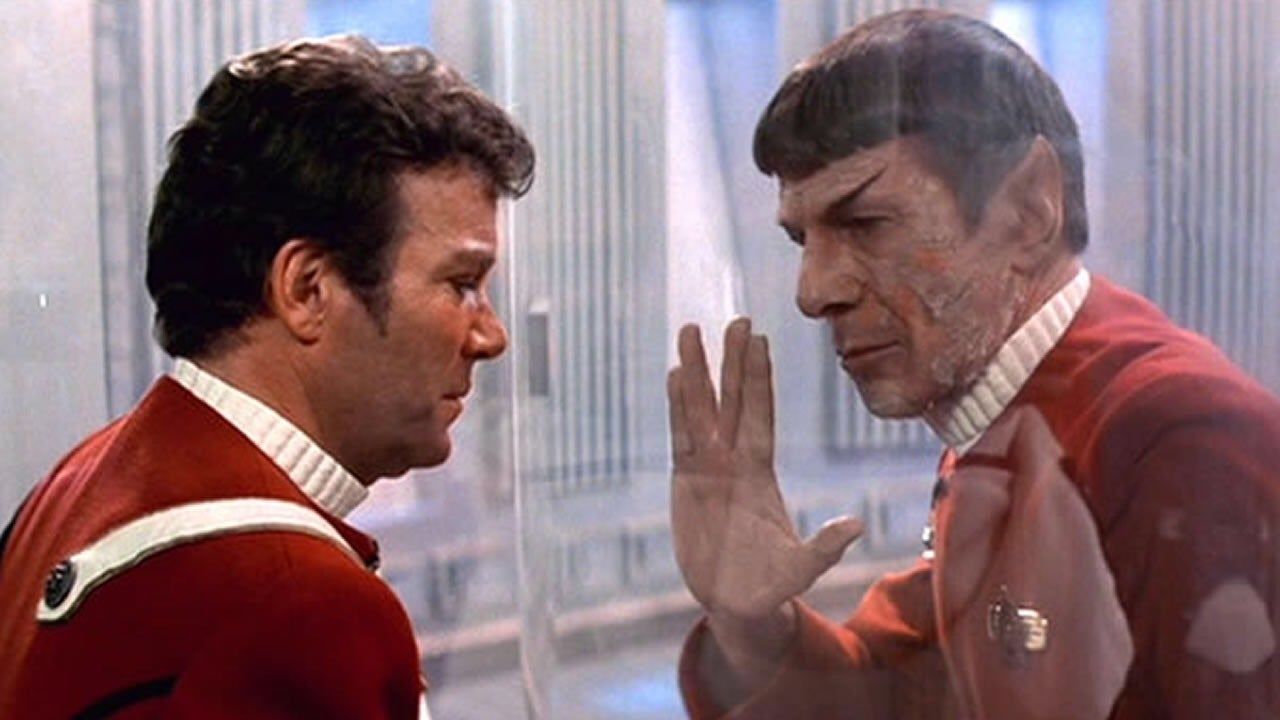
Star Trek: Generations passed the torch between two eras. Released in 1994, the movie went about this almost literally, putting its two iconic Starfleet captains, The Original Series' Kirk and Star Trek: The Next Generation's Picard, side by side for the first time. The movie wasn't without its flaws, but its casting was stellar. Veteran actor Malcolm McDowell was lured to the project as its villain, handed an offer he couldn't refuse. As the man who would kill the fictional Captain James T. Kirk, McDowell didn't expect real-life death threats.
Star Trek: Generations' plot is obscure, but it boils down to a mad scientist's desire to return to an extra-dimensional nexus, where existence is joyful. Dr. Soran (McDowell) is from the same world as the fan-favorite Guinan (Whoopi Goldberg), and it's her memories of him that clue Picard into what Soran is doing. Picard's first attempt to stop Soran from planetary genocide fails, and he's pulled into the nexus along with Soran. Within this ribbon of frozen time, Kirk lives a peaceful life, and after deciding to help Picard save the next doomed world, Kirk dies in a successful attempt to stop Soran.

It was irresistible stuff for McDowell, who's had a long and successful career playing up his dramatic capability for evil. He's a cinema legend for his role as Alex DeLarge in Stanley Kubrick's A Clockwork Orange. He's also no stranger to video games fans as the voice of the diabolical daedric prince Molag Bal in Elder Scrolls Online. But as the man who brings down Captain Kirk, it gave McDowell another first-time experience: death threats from too-avid fans. It was a surprise for McDowell, who'd ducked similar ire aimed at Kubrick for his ultra-violent film.
In a 2011 interview with journalist Brian Reesman, McDowell was quick to explain that he didn't take the threats seriously. However, the studios did, giving him a security detail whenever he was out making promotional stops for Star Trek. Fortunately for McDowell, the threats didn't lead to real danger. McDowell joked with his detail one night outside of New York's Carlyle Hotel, saying, "I feel embarrassed that nobody’s tried to kill me, for Christ’s sake!"
It wasn't the first time the Star Trek franchise wrangled threats. Leonard Nimoy's family took the brunt of the fandom's ire over Star Trek II: The Wrath of Khan. Spock dies in the climax of one of the best Trek films to date in a haunting but meaningful sequence that later led to one of the best reincarnations in science fiction. The film's original cut didn't leave clear hooks for Spock to return, but the building anger and Nimoy's own refreshed fondness for the role smoothed the issue over.

Another chilling story comes from Babylon 5 actor Claudia Christian, about a fan who arrived at her convention table dressed as a Star Trek tribble and who shot her with a gun loaded with blanks. It's a problematic phenomenon that's not confined to Star Trek, either, with unhappy fans infiltrating conventions or performers' lives to threaten or harm them.
Harlan Ellison, the author behind Star Trek's "The City on the Edge of Forever," illuminated several examples of horrific behavior in a 1990 essay called "Xenogenesis," including one of the first known examples of being "swatted" when a so-called fan got Ellison raided by the police. Another example reveals fantasy author Raymond E. Feist receiving death threats via his public phone number. These were anecdotes from before the impending BBS and forum era, where flame wars would become a popular new "hobby" among some cruelly-inclined fans. In that same interview with Reesman, McDowell noted that avoiding the internet era had probably smoothed some of the response to Kubrick's film.
In more recent times, the hostile response to 2016's Ghostbusters and the abuse Kelly Marie Tran and John Boyega endured for their roles in Star Wars proves the issue never goes away. It's also worth remembering that this behavior comes from a vocal minority and shouldn't reflect on the larger fandom itself. Still, these experiences can leave creators with lasting effects.
WhileMcDowell weathered his encounter with fandom safely, the rate of shuttered celebrity social media accounts and often constant Twitter abuse has become something creators have to consider before setting to work. It's an uncomfortable but bizarre aspect of pop culture. As huge as Star Trek is, it's not a surprise to discover an uglier side to its fandom. But it's always worth calling out that abuse when it occurs, so that future fans and creators can have a safer place to explore brave new worlds.
0 Comments